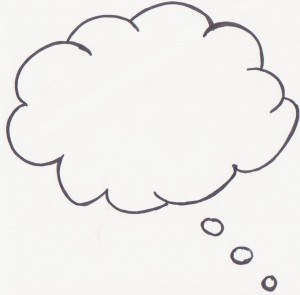“Drinking itself is not bad.”
“Is it good, then?”
“No, I am not saying it is good. But just because someone drinks does not mean he or she is bad.”
“Okay, drinking does not make one bad. Agreed. So, what is bad, who is bad, and what ‘makes’ one bad?”
“The one who is immoral, does wrong and deceive people for his own benefit is ‘bad’.”
“Deception involves lying because without resorting to lies one cannot deceive. So, a liar is bad and by extension telling lies is bad, is it?”
“Not always. In certain circumstances lying can be better than telling the truth.”
“What kind of conditions and circumstances are those?”
 “Such actions that are directed towards the welfare of others are right actions and if that involves telling lies even that is justified on grounds of bonafide action.”
“Such actions that are directed towards the welfare of others are right actions and if that involves telling lies even that is justified on grounds of bonafide action.”
“And how can one decide what is beneficial to the other without being that ‘other’? What supplies one the capacity or the right to decide for someone else?”
“In certain cases the ‘other’ might not be there to make the decision or might be incapable of deciding for oneself.”
“And would it be ethically correct to resort to falsehood, treachery and deceit on behalf of someone else for his benefit without knowing whether or not he himself would do it in that condition?”
“Wait, I am not talking of treachery and deceit!”
“They are just a few ugly forms of falsehood. They might sound bad, but their essential content is lies. And lies are lies, small or big. If telling lies is permissible, how can any of its forms be objected to?”
“Okay. But then I can foretell what a person would do in certain circumstances if I know the individual well enough.”
“Really? Isn’t it very difficult, if not altogether impossible, to know someone completely because anything short of a ‘complete understanding’ is not ‘enough’? Furthermore, isn’t it even more difficult to know the complete circumstance of any other person at any given moment? Therefore, one could safely say that it absolutely impossible to foretell the outcome of the interplay between his circumstance and his mental state, which is why to say that one would do this and this in such and such circumstances is a difficult thing to foretell even for one’s own self, let alone for someone else.”
“But isn’t it done all the time? Doesn’t the State everyday decide for all of us? Aren’t our welfare being thought of by the State? And aren’t we all convinced that our individual interests are being adequately taken care of by the State? If it was not possible to know what is good for any ‘other’ person, how could it happen that a handful of people decide for millions every single day? How could something that is ‘impossible’ be actually done and yet remain ‘impossible’? Isn’t there something grossly wrong somewhere?”
“May be. The State certainly decides for its people, but none of its actions are questionable on moral grounds because laws cannot be illegitimate, for there can be no such action that is both ‘just’ and ‘immoral’, which implies that morality in law is presupposed as its necessary element and is not open to question. This also means that laws so long as they stand are not open to moral challenges and the moment they are, they lose legitimacy and for that reason cease to be ‘laws’.”
“So, there can be no debate about the moral content of laws?”
“Of course, there can be such a debate. Remember, ‘just, fair and reasonable’? The moment a law is found to be unjust or unfair or unreasonable, its illegitimacy stands proved and it becomes obligatory for a constitutional court to strike it down. The Courts cannot both declare the law ‘unjust’ and also uphold it. Therefore, so long as a law is valid, its ‘morality’ remains unquestionable and self-evident, it being the very soul of all laws.”
“If laws have unassailable moral content, how can a law be challenged on grounds of morality?”
“Laws are not morally neutral, but have an essential moral content, which is why it is open for one to challenge laws on moral grounds. And this means that laws must stand moral scrutiny, and in this sense moral principles are superior to the laws because the latter have to conform to the former and not the other way round.”
“But then, doesn’t it prove that it is certainly not impossible for one to decide for others?”
 “Only and only when there are no moral issues involved, which rules out ‘telling lies for others’.”
“Only and only when there are no moral issues involved, which rules out ‘telling lies for others’.”
“But again, it is possible to imagine situations where doing what might otherwise be ‘wrong’ might be ‘right’, whereas doing ‘right’ may be ‘wrong’ in terms of consequences.”
“Doing ‘wrong’ may turn out to be consequentially ‘right’ or ‘wrong’, but doing the ‘right’ would never be ‘wrong’ regardless of consequences, which is why abiding by the law never incurs any liability, the severity or magnitude of consequences notwithstanding.”
“And what is ‘right’”?
“Reason is incapable of answering that question because it involves allocation of values. And values are not logical constructs. This is the limitation all wise men knew of and honoured, and all fools attempt to breach with imaginary success everyday.”
Originally published as part of my monthly column STREET LAWYER in LAWYERS UPDATE [December 2010 Issue; Vol. XVI, Part 12]





